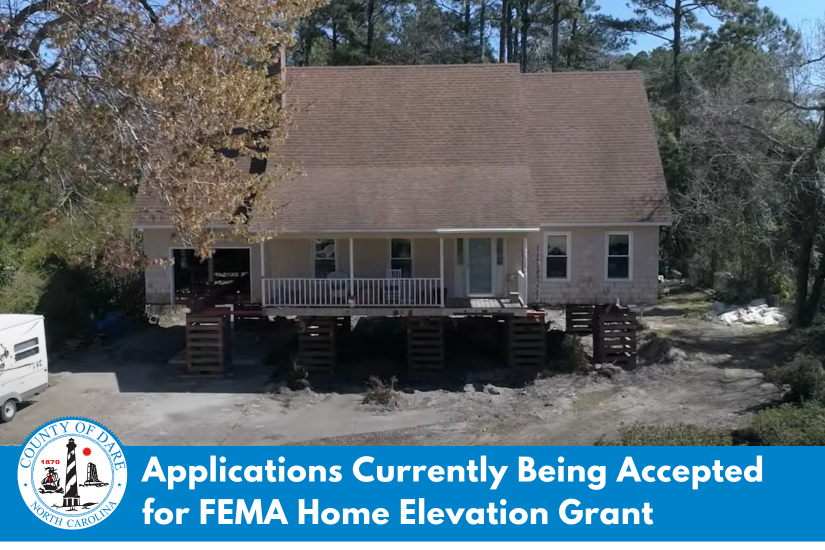Kiteboarding businesses contend with what some term ‘unfair’ competition
Businesses owners on Hatteras Island already have to contend with unpredictable weather and periodic road issues, but local kiteboarding businesses say unfair competition may be also undercutting their bottom line.
Although it is mostly done under the radar, some out-of-town companies have been sub-leasing large houses to groups and offering kiteboarding workshops, meals made by an “in-house” chef, and participation in classes and other activities without paying occupancy and sales taxes or permit fees.
Terry Burns, owner of Blowkite, a Buxton business that sells kiteboarding lessons, camps, and gear, said that when interlopers essentially set up shop for the season without obtaining insurance, licenses, permits, tax identification numbers or even work visas, not only is the traveling public unprotected, the local businesses are hurt.
“They come down here with gear that all of us sell,” Burns said. “I’m in business – this is not a charity.
“If I didn’t have overhead, or pay taxes,” he said, “or if I was making money renting the houses out, then, sure, I’ll make you a deal.”
Burns, who opened on St. Patrick’s Day 2012, has brought the situation to the attention of local officials and the state Department of Revenue, but so far nothing appears to have changed.
“None of those groups were shut down,” he said. “There’s tons – at least a dozen – coming this year.”
Some groups have advertised online, he said, but others rent large houses and pay the fee upfront. Then each person in the group pays the renter directly, rather than dealing with the real estate company, which is kept in the dark.
The Pamlico Sound off Hatteras Island is renowned as one of the best kiteboarding areas in the world. Many of the groups that rent the houses are from northern states or Canada, and they come in the spring and fall when the Outer Banks winds and conditions are good for kiteboarding, and the area is still uncrowded. But some also come in the summer.
Many online sites advertise kiteboard camps on Hatteras Island, offered by businesses based in New Jersey, Michigan, Rhode Island and Canada.
Holly Austin, operations manager for Hatteras Realty, declined to comment specifically on situations where people were reportedly making money charging extra for rooms. But she said that guests at rental houses are not allowed to sublet.
“If we are aware of a leaseholder that is in violation of the terms of the lease,” she said in an e-mail, “we will take the steps allowable by law to correct the situation or remove the reservation.”
The office of state Rep. Paul Tine, who represents Dare County, told Burns that his concerns were shared with the Revenue Department, which in turn said it cannot divulge any information about investigations.
“Our office believes that all of your reports have been investigated,” wrote Tine’s aide Katy Kingsbury in a February e-mail to Burns, “and most of the businesses were found to have been operating properly under the law.”
In other correspondence, Dare County Board of Commissioners Chairman Bob Woodard told Burns that the county tax collector will attempt to collect whatever occupancy tax is due.
But Ty Luckett, a veteran Hatteras Island kiteboarding instructor, said the practice doesn’t just hurt the kiteboarding businesses.
“The real estate companies are getting crushed and the restaurants are losing out,” he said. “Everybody here –- we have a seven to eight-week window to make a living.“
Luckett, who also does commercial fishing, said that outside instructors cut into demand for his skill and undermine the value of his experience and local knowledge. Even his business model of trusting people’s word has bitten him lately, he said, with last minute cancellations costing him an entire week of work.
“This is probably the best place in the U.S. to kite and teach,” he said, “and they’re not using our local resources. Everybody is losing out – it’s not just kitesurfing.”
Christopher Nygard, general manager of Waves Village Watersports Resort, says he understands the frustration the local kiteboarding professionals feel toward outsiders trespassing on their turf and skimming off their business.
But he also sees it as a symptom of the “growing pains of the industry.”
“I’m not taking it lightly,” he says. “Yes, it impacts us. But the best we can do is provide a superior service and the sense of community. In my honest opinion, that’s the best way we can counter it.”
Nygard, who has been in the industry since 1999, said that Waves Village, an offshoot of Kitty Hawk Kites, has eight certified instructors, four Jet Skis and four boats that are used at its soundfront school. The business has a concessionaire’s permit, a business license, commercial liability insurance and pays federal and state taxes.
Watersports on Hatteras Island has come a long way since the early days of windsurfing back in the 1980s, and kiteboarding has become a huge draw for the island.
“On one side, I think there will always be people who organize trips and rent houses,” Nygard says. “People like to hang out with like people. “
On the other hand, he added, it’s hard when everyone is pressed so thin to keep track of all the activities and rules in a resort atmosphere.
“The regulations will more than likely not be enforced – that is just reality,” Nygard says. “I don’t think the state of North Carolina has that on the top of its to-do list.”
George Pare, owner of True Progression Kiteboarding in Rhode Island, said that his company had planned to rent a house from a local realty company this year to hold an event, but he said he decided to cancel after questions were raised with him about the rental arrangement, and there seemed to be no easy answer for incorporating the additional fees.
“I would love to contribute,” he said. “It would be great if there was a way for us to do so (but) I don’t want to do anything that hurts anybody in any way . . . I wouldn’t want to negatively impact local businesses.”
True Progression had been offering a package that included costs for kiteboarding, yoga sessions, chef-cooked meals and a room at an Avon rental house.
“It really is more to go down there and have a retreat,” he said, “to bring a group, with a package and have an inclusive experience. We were hoping for healthy food, an all-over balanced experience, meeting people.”
The “rent” included all costs for the retreat. If they hadn’t advertised, he said, no one would have even noticed, since people routinely split costs in the large houses. And the rental companies probably would be fine about it.
“I think generally,” he said, “if they don’t know about it, they don’t feel they need to do anything.”
Pare said that kiteboarders have long pooled their resources, with one of them fronting the money, to rent houses together, and the Outer Banks is a premier location for the sport.
“It is really a wonderful place and it’s a great place to go if you want to go on vacation,” he said. Pare said one reason he wants to continue teaching the sport here is that he knows the area well from having visited so often over the years.
Although he is still mulling over working with the established companies to bring a kiteboarding group to the island, Pare said, he doesn’t want to be dishonest and try to slip in under the radar with accommodations. He would love to work it out on the Outer Banks, he said, but he also does not want to lose control over the experience.
“I’m just trying to see if something fits,” he said. “The only way I’d want to be involved with anything on the Outer Banks is if it was mutually beneficial to the local community and to myself and my students.”







